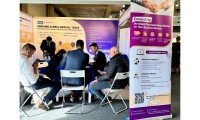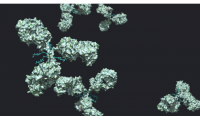-
Roche Cuts Pipeline as COVID, Currency Headwinds Impact Q3 Results
- Source: By Tristan Manalac
- 137
- October 31, 2023
-
Supply disruptions are delaying surgeries and compromising patient care, survey finds
- Source: https://www.medtechdive.com/news/supply-disruptions-delaying-surgeries-ecri/697140/
- 211
- October 31, 2023
-
Pupil size may predict response to TMS treatment for depression
- Source: https://www.news-medical.net/news/20231020/Pupil-size-may-predict-response-to-TMS-treatment-for-depression.aspx
- 115
- October 31, 2023
-
Drugdu.com Unveils Digital Medical Trade Solutions at CPhI Barcelona
- Source: drugdu
- 237
- October 27, 2023
-
Lack of Autonomy Is a Major Reason Clinicians Are Exiting the Field
- Source: drugdu
- 133
- October 27, 2023
-
Daiichi Sankyo, Merck Set to Collaborate on Three DXd Antibody-Drug Conjugates
- Source: drugdu
- 129
- October 27, 2023
-
Intuitive leaders weigh in on GLP-1 drugs and surgical robotics procedures
- Source: drugdu
- 122
- October 27, 2023
-
Indivior Agrees to Pay $385M Amid Monopoly Lawsuit
- Source: drugdu
- 119
- October 27, 2023
-
Disruptors of This Industry Are Already in It
- Source: drugdu
- 107
- October 27, 2023
-
Intuitive leaders weigh in on GLP-1 drugs and surgical robotics procedures
- Source: drugdu
- 135
- October 21, 2023
your submission has already been received.
OK
Subscribe
Please enter a valid Email address!
Submit
The most relevant industry news & insight will be sent to you every two weeks.












